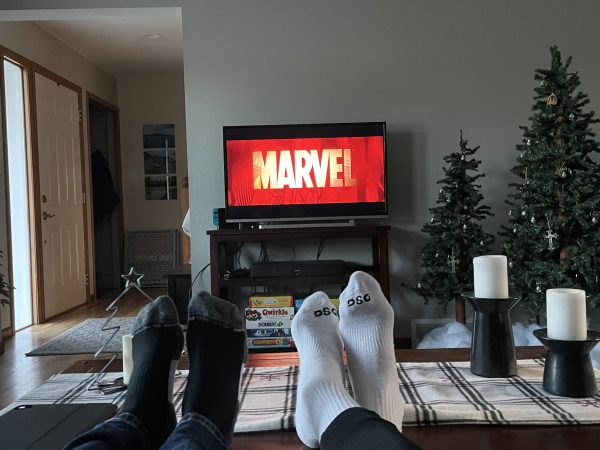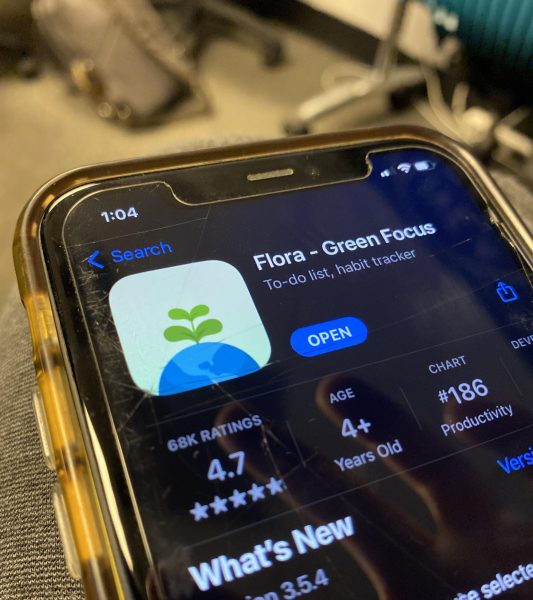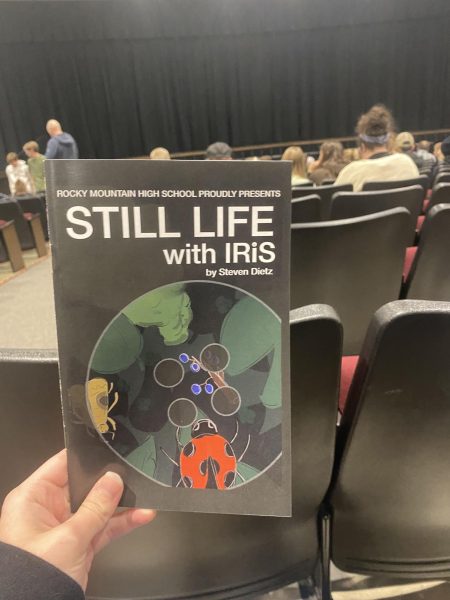Pro-choice vs Pro-life
The passage of Roe v Wade in 1973 legalized abortions and made them accessible to women until their third trimester of pregnancy. The Supreme Court case prompted a national debate that continues today about whether abortions should be legal and to what extent. This continues to divide parties in national politics and split the United States population into pro-life and pro-choice factions.
Prior to the decision of Roe v Wade, hundreds of thousands of women attempted their own abortions using coat hangers or knitting needles to induce a miscarriage. These attempts led to uterine perforation, infection, infertility, and the deaths of many women. This is the result of these women living in countries that would not allow them to safely and legally make reproductive decisions.
Further polarizing the issue, President Donald Trump has promised to reverse Roe v Wade in his campaign. This decision would deprive women of their human rights, and if he succeeds, many women will be forced to once again take extreme measures to have control of their own bodies and lives. President Trump falls on the conservative side of the debate and sides with the pro-lifers, thus affecting these decisions.
Many Americans have the misconception that being pro-choice means one is “anti life.” This is just not the case. Those who are pro-choice argue that because of how private and personal the decision to have an abortion is, no one but the woman, her family, and her doctor should help make that decision for her. Pro-choice participants are simply attempting to protect women’s rights.
Pro-lifers on the other hand, argue that abortions are ethically wrong and tend to impose their morality on others. If you don’t believe in abortions, then don’t get one. That is a choice. But I believe that it’s not anyone’s right to take the choice of another woman away from her.
The debate over whether abortions should remain legal will continue and potentially be challenged by our current president. An alternative to reversing the legalization of abortions is compromise.
Pro-choicers must adjust their views and consider the other side. Limiting the time a woman has to receive an abortion, and cutting government funding for abortions, seems fair.
If a woman desires an abortion, no matter her circumstance, she should be responsible for paying for it. Pro-lifers need to respect the fact that it is a choice and a human right, one that should not be ripped away without extensive thought and consideration.

Your donation will support the student journalists of Rocky Mountain High School - CO. Your contribution will allow us to purchase equipment and cover our annual website hosting costs.

Fiona is a senior at Rocky Mountain High School. Throughout high school she has participated in DECA, Key Club, Link Crew and various honors societies....







Noah Patchen • May 2, 2019 at 9:22 am
So you are anti-life?
Conner Joseph Culhane • Apr 22, 2019 at 12:56 pm
My biggest issue with the debate over abortion is the extensive use of euphemisms from both sides of the debate. There is no pro-choice or pro-life, there are only those who support the legality of abortion and those who do not. These euphemisms have prevented our country from having an honest discussion about the issue. You say in your article “Those who are pro-choice argue that because of how private and personal the decision to have an abortion is, no one but the woman, her family, and her doctor should help make that decision for her.” This argument is similar to that made by the Warren Court in ’73 when the Roe v. Wade decision came down as a shining example of pure judicial activism and a perverse reading of the 14th amendment in order to enshrine these ideological views into law. The fact of the matter is that these quasi-libertarian arguments in favor of a woman’s “right” to abortion on account of it being her “choice” do not hold water. Your rights extend up and until they infringe upon the rights of others, so the relevant clause of the 14th amendment is actually “nor shall any State deprive any person of life.” Beyond the fact that Roe legalized the ability of women and abortionists to end the lives of the unborn it also set a bad precedent for future decisions regarding issues that are similarly polarizing or ideological. As Yale law professor John Hard Ely said “What is frightening about Roe, is that this super-protected right is not inferable from the language of the Constitution, the framers’ thinking respecting the specific problem in issue, any general value derivable from the provisions they included, or the nation’s governmental structure. … It is bad because it is bad constitutional law, or rather because it is not constitutional law and gives almost no sense of an obligation to try to be.”
I appreciate your call for compromise but I fear we will never find such a compromise, at least not until we drop the BS and starting speaking in plain terms about what we actually support.
Ethan Hollcroft • Apr 22, 2019 at 12:25 pm
All humans have exactly 30 right, as listed by the UN.
Here they are:
1. We are all free and equal. We are all born free. We all have our own thoughts and ideas. We should all be treated in the same way.
2. Don’t discriminate. These rights belong to everybody, whatever our differences.
3. The right to life. We all have the right to life, and to live in freedom and safety.
4. No slavery – past and present. Nobody has any right to make us a slave. We cannot make anyone our slave.
5. No Torture. Nobody has any right to hurt us or to torture us.
6. We all have the same right to use the law. I am a person just like you!
7. We are all protected by the law. The law is the same for everyone. It must treat us all fairly.
8. Fair treatment by fair courts. We can all ask for the law to help us when we are not treated fairly.
9. No unfair detainment. Nobody has the right to put us in prison without a good reason and keep us there, or to send us away from our country.
10. The right to trial. If we are put on trial this should be in public. The people who try us should not let anyone tell them what to do.
11. Innocent until proven guilty. Nobody should be blamed for doing something until it is proven. When people say we did a bad thing we have the right to show it is not true.
12. The right to privacy. Nobody should try to harm our good name. Nobody has the right to come into our home, open our letters or bother us or our family without a good reason.
13. Freedom to move. We all have the right to go where we want in our own country and to travel as we wish.
14. The right to asylum. If we are frightened of being badly treated in our own country, we all have the right to run away to another country to be safe.
15. The right to a nationality. We all have the right to belong to a country.
16. Marriage and family. Every grown-up has the right to marry and have a family if they want to. Men and women have the same rights when they are married, and when they are separated.
17. Your own things. Everyone has the right to own things or share them. Nobody should take our things from us without a good reason.
18. Freedom of thought. We all have the right to believe in what we want to believe, to have a religion, or to change it if we want.
19. Free to say what you want. We all have the right to make up our own minds, to think what we like, to say what we think, and to share our ideas with other people.
20. Meet where you like. We all have the right to meet our friends and to work together in peace to defend our rights. Nobody can make us join a group if we don’t want to.
21. The right to democracy. We all have the right to take part in the government of our country. Every grown-up should be allowed to choose their own leaders.
22. The right to social security. We all have the right to affordable housing, medicine, education, and child care, enough money to live on and medical help if we are ill or old.
23. Workers’ rights. Every grown-up has the right to do a job, to a fair wage for their work, and to join a trade union.
24. The right to play. We all have the right to rest from work and to relax.
25. A bed and some food. We all have the right to a good life. Mothers and children, people who are old, unemployed or disabled, and all people have the right to be cared for.
26. The right to education. Education is a right. Primary school should be free. We should learn about the United Nations and how to get on with others. Our parents can choose what we learn.
27. Culture and copyright. Copyright is a special law that protects one’s own artistic creations and writings; others cannot make copies without permission. We all have the right to our own way of life and to enjoy the good things that “art,” science and learning bring.
28. A free and fair world. There must be proper order so we can all enjoy rights and freedoms in our own country and all over the world.
29. Our responsibilities. We have a duty to other people, and we should protect their rights and freedoms.
30. Nobody can take away these rights and freedoms from us.
Now that you’re done reading, you may notice Numbers 1, 3, 6, and 7.
you may also notice that nowhere in this article did they say abortion is a “Human right” as you said.
i also noticed you used the term ” impose their morality” while arguing against the pro-life side. I don’t know about you, but unless the mother may die as a result of giving birth, i don’t think that killing a baby mere days before it’s born is a morality that needs to be imposed.
i support a womens ability to get an abortion. but aborting a baby after it’s born is too far. i think this is what the deciders of roe v wade had in mind when they imposed the “third trimester” limit.